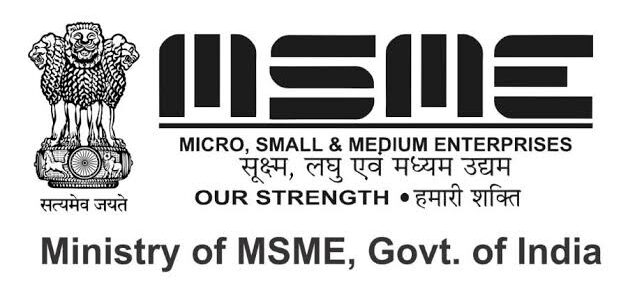A NIDHI Company is a type of non-banking financial company (NBFC) recognized under Section 406 of the Companies Act, 2013. Its core business is borrowing and lending money between its members. NIDHI Companies are formed to cultivate the habit of thrift and savings among their members and work on the principle of mutual benefit.
1. Definition and Nature
- Definition: A NIDHI Company is a type of NBFC that deals with its members only, borrowing from and lending to them for mutual benefit.
- Nature: It is a mutual benefit society, as its transactions are restricted to its members (shareholders), and it is governed by the Ministry of Corporate Affairs (MCA).
2. Members Required
- Minimum Members: A minimum of 7 members at the time of incorporation, which should increase to 200 members within one year of incorporation.
- Maximum Members: No maximum limit on the number of members.
3. Registration
- Mandatory: Registration under the Companies Act, 2013, is mandatory.
- Process:
- Digital Signature Certificate (DSC): Obtain DSC for all directors.
- Director Identification Number (DIN): Obtain DIN for all directors.
- Name Approval: Apply for name approval through the MCA portal.
- Incorporation Form: File Form SPICe+ (Simplified Proforma for Incorporating a Company Electronically) with the Registrar of Companies (RoC) along with the Memorandum of Association (MOA) and Articles of Association (AOA).
- Certificate of Incorporation: Once approved, the RoC issues a Certificate of Incorporation.
- NIDHI Rules: Comply with NIDHI Rules, 2014.
To get your NIDHI Company registration, you can contact WynSwell for all such services. We offer pan-India services to ensure your business complies with all necessary regulations.
4. Licenses
- NIDHI License: Obtain a NIDHI Company license from the RoC.
- Other Licenses: Depending on the nature of business activities, other licenses such as GST registration may be required.
5. Taxation
- Income Tax: NIDHI Companies are taxed at the standard corporate tax rate of 25% for companies with a turnover up to ₹400 crores, and 30% for companies with a turnover above ₹400 crores, plus surcharge and cess as applicable.
- GST: Not applicable to interest earned on loans; however, GST registration is required if other taxable services are provided.
6. Audit
- Statutory Audit: Mandatory annual audit of financial statements by a qualified Chartered Accountant.
- Internal Audit: As per the company’s articles and NIDHI Rules, 2014.
7. Accounting Rules
- Bookkeeping: Maintain accurate records of all financial transactions.
- Financial Statements: Prepare Profit & Loss Statement, Balance Sheet, and Cash Flow Statement annually.
- Cash Flow Management: Crucial for the sustainability of the business.
- Filing Requirements: File annual financial statements and annual returns with the RoC.
8. Scope and Types
- Scope: Suitable for mutual benefit and thrift societies focusing on the financial needs of their members.
- Types: Typically, NIDHI Companies focus on savings and lending activities among their members.
9. Banking Norms
- Separate Bank Account: Required to open a current account in the name of the NIDHI Company.
- KYC Norms: Banks require proof of identity, address proof, incorporation certificate, MOA, AOA, and PAN of the company.
10. Regulations
- NIDHI Rules, 2014: Compliance with the specific rules laid down for NIDHI Companies.
- Companies Act, 2013: Adherence to the Companies Act.
- Restrictions: NIDHI Companies cannot carry out the business of chit funds, hire-purchase finance, leasing finance, insurance, or acquisition of securities issued by any body corporate.
11. Compliance Requirements
- Net Owned Funds: A minimum of ₹10 lakhs as net owned funds.
- Deposits and Loans: The ratio of net owned funds to deposits cannot exceed 1:20.
- Membership: Must have a minimum of 200 members within one year of incorporation.
- Branch Offices: Can open up to 3 branches within the district; opening branches outside the district requires prior approval from the RoC.
Advantages
- Limited Liability: Members’ liability is limited to the amount of their shareholding.
- Encourages Savings: Promotes the habit of saving among its members.
- Ease of Access to Loans: Members can easily obtain loans at lower interest rates.
- Regulated Framework: Operates under a regulated framework, ensuring compliance and protection of members’ interests.
Disadvantages
- Restricted to Members: Can only lend to and borrow from its members.
- Regulatory Compliance: Requires strict adherence to NIDHI Rules and other regulatory requirements.
- Limited Growth: The growth potential may be limited due to the restricted scope of activities.
Conclusion
A NIDHI Company is an excellent option for mutual benefit societies focusing on encouraging savings and providing financial assistance to their members. It provides the benefits of limited liability, ease of access to loans, and a regulated framework. However, it comes with strict compliance requirements and a limited scope of activities.
For assistance with your NIDHI Company registration and other compliance needs, contact WynSwell. We offer comprehensive services across India to help you focus on growing your business without worrying about compliance issues.












